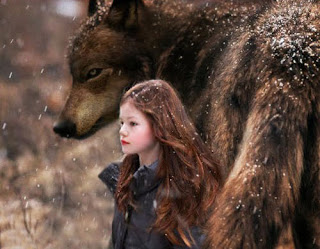My class participated in a 24-hour media fast (or tried to)
and I was interested to see the conclusions. It got me wondering about if a
line can be drawn on media use, or if it’s just a part of life now. Jessica Lees remarked on the fact that, though she appreciated the excuse for more physical
sociality, she said, “I now see clearer how deeply technology has become
embedded in my life, and I don’t think it is necessarily in a bad or harmful
way.” Curtis Jenkins remarked on the power of machines in his life:
“What I discovered is that the two are intertwined. Not just with work, or school, but socially, emotionally, everything. Machines are not our masters, nor are we their slaves. They’re part of us, just like we are part of them. Take away my cell phone and you’ve taken away a social element that’s infused with everything else I do socially.”
Likewise, Ellis Dyck said, “I expected the media fast to alert me to
the ways the “machines” were controlling me. Instead it reminded me what
a tremendous blessing most media technology is, reminded me especially of the
ways it keeps me connected and even makes it easier for me to be with the
people I love. We are so lucky to live in the Digital Age.”
But it’s not all positive. Rebecca Ricks admitted that she spends
“far too much time online goofing off.” Nicole Black says she is “dependent” on
her gadgets, a word that has become dirty. But is it really so bad to be
dependent?
One blogger complained of a time she was with friends and they were all texting or checking emails. In her article "Technology Addict," she wrote,
"We are all over wired. . .. Smart phones have made us dumb to the world around us. . . . Now, don't get me wrong. I love my smart phone. I love the Internet. I love technology. That's how we all live and work. But when people use technology to replace real human connections, then it's a real problem. Everyone needs to connect and to feel connected; this is fulfilling and is a deep, essential human need. But now, people are meeting those needs virtually rather than personally. People are relying more and more (and some solely) on technology and the virtual world to feel connected. And that's a problem."
People like to blame the internet for all social problems. Yes, there is oversharing and overobsessing. I hate being at
a group activity and having everyone be on their phones. But that’s just an
issue of etiquette—an internal affair I don’t think we can blame on technology
in general. People complain about a lack of social skills—maybe
social mores are simply changing. We talk about being plugged in like it's a crime, like we've lost something. But aren't we just evolving?
It’s interesting how paranoid people can be about digital
culture. “It’s changing us,” they clamor. Everyone is talking about “We lived without it before.” Yes, we also lived without cars and medical care—do we always want to go back? This is an integral part of our society. This is our now, so why not live it? Maybe instead of always fighting it and living this tug of war between past and future, maybe we should learn to evolve—to naturally learn to be efficient with the internet and digital media. Since when has life or culture
been about stagnation? We have been growing, developing, evolving. That’s not to
say we’re always improving, but we are always proving it’s impossible to go
back. No matter how the Renaissance tried, they didn’t make it back to Greece;
no matter how depressing, WWI wiped the Victorian era completely away; and no
matter who pounds their fist and cries against change, the technological
age—this world of Web 2.0—is here. So why fight it? Learn to control it, and
not it you, yes. Learn to manage your existence in it and the impact it makes, sure. But don’t let it be a separate entity from “life”: this is
becoming one and the same.
At one point this summer, my family was spread across the world. I was in London, my brothers were in Afghanistan, my sister was in Africa, my dad was in Wyoming, and my mom wound up in Paris. But we were able to text and facetime and hangout on google. One of the best moments of my recent life was when my brother facetimed me on my iphone while I was at my sister-in-laws house, and so we had my other brother skype his wife and we were able to hold the phones up so the brothers could see each other—for the first time in a year. So suffice it to say, technology has wooed me.
That’s not to say our world should be one based entirely on
web or influenced completely by digital mediums, but I can’t help but think we
should stop fighting it per se, stop always looking back at the “good ole
days,” and just learn to embrace it, appreciate it, and evolve with it.
I'd be interested to see what the naysayers have to say. I especially enjoyed this NYT article about major internet leaders worried about too much of a good thing. They bring up valid points about the threat of being "swept away by our technologies." So, yeah, yeah, yeah, there are definitely two sides to the argument--and it's a big argument--but I can't help but feel that...this is life. Deal?





